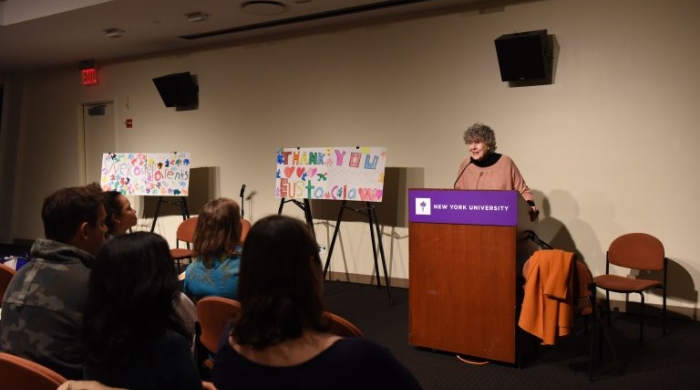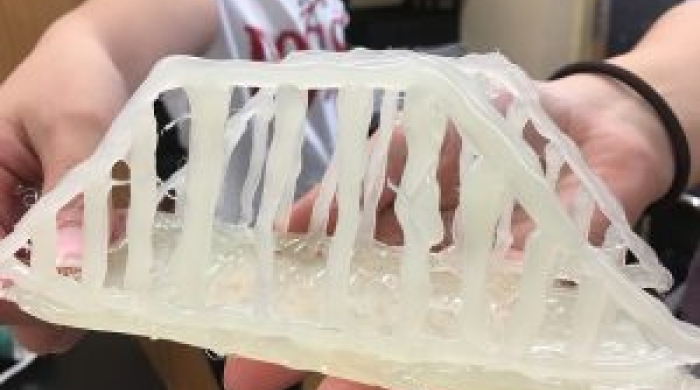At the NestCon, a three-day conference in February, teachers, researchers, autistic self-advocates, and members of the neurodiverse community came together to learn about the latest research and innovation in the autism field.
"Why do we tell kids to stand out and make a difference and tell autistic people to be like everyone else?"
This question was posed by Stephen Shore, Ph.D., an autistic self-advocate, at NestCon, a conference hosted by the ASD NEST Support Project at NYU Steinhardt’s Metro Center.
The event brought together members of the education and autistic communities to discuss best practices for creating inclusive school environments for autistic children.
In his keynote address, "Developing Effective Self-Advocacy Strategies for Autistic Individuals," Shore, a full-time professor at Adelphi University and an adjunct professor at NYU Steinhardt, offered an action plan for strengthening self-awareness and communication skills, and advice on obtaining reasonable accommodations.
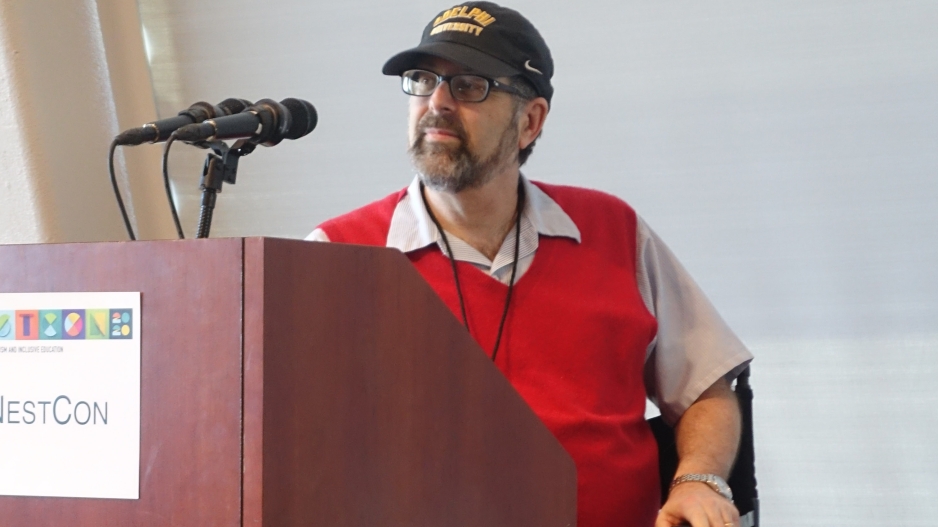
Dr. Stephen Shore gave a keynote address on developing effective self-advocacy strategies.
He also spoke about the "how, when, where, and why" of self-disclosure, noting that self-disclosure is a skill that enhances self-advocacy and leads to an increased sense of self-esteem. He also questioned whether learning to conform to societal expectations was the best approach for autistic people, leaving the audience to ponder whether it was better to abide by the advice given to most young people: "Stand out and make a difference!"
Why do we tell kids to stand out and make a difference, and tell autistic people to be like everyone else?"
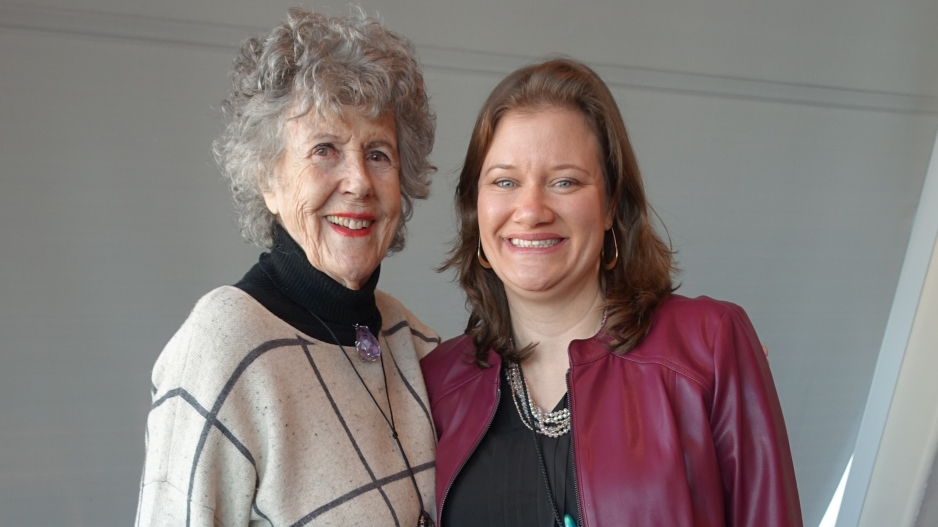
Eustacia Cutler (left) was introduced by Michelle Flemen-Tungan at a special ASD Nest Parent and Caregiver Luncheon.
At a luncheon for ASD Nest parents and caregivers, Eustacia Cutler, the mother of Temple Grandin, was honored for her autism advocacy. Cutler was also ahead of her time in the 1950s when she went against the advice of the medical establishment and created her own plan to educate her unusual daughter. At NestCon, Cutler emphasized the importance of adopting a strength-based approach that focuses on skills, interests, and passions, rather than a child's deficits. She spoke of the value of praise and the importance of finding a "champion" for a child at each stage of development.
In 'Hearing from the Experts,' a conversation with autistic self-advocates about their K-12 education, Colin Ozeki (far left), an NYU Stern rising junior, spoke about his experience in the ASD NEST program. He said, “At NEST, I simply was allowed to be myself and focus on my interests. I felt like I belonged."
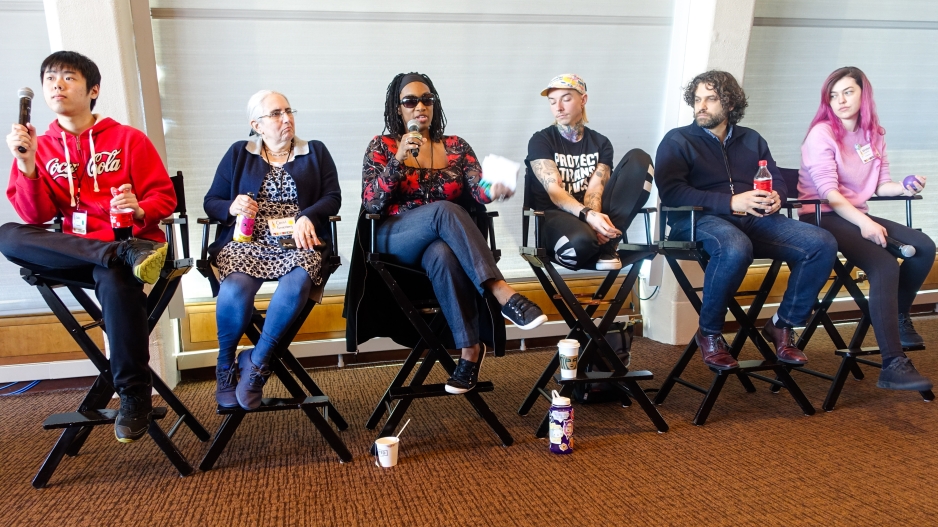
For many autistic self-advocates, school was an experience of social isolation and disconnection. Kirsten Lindsmith, a writer, software developer, and artist (far right), decided to channel one teacher's discouraging comments into advocacy and art.
The ASD Nest Support Project was created in 2004 by Dorothy Siegel, a former senior researcher at NYU Steinhardt. Siegel, whose son is autistic, was inspired to start the program while reading Thinking in Pictures, Temple Gradin’s memoir about autism. She designed the program with Shirley Cohen, a professor of special education at Hunter College.
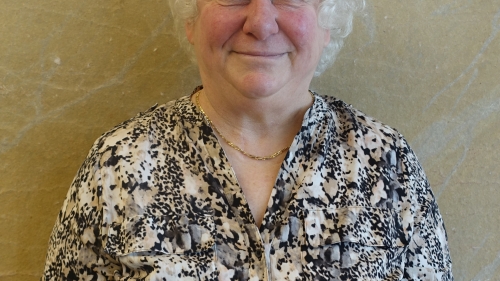
Dorothy Siegel, creator of the NEST Program, was inspired by Temple Grandin's memoir about autism.
ASD Nest’s first classroom was in Public School 32 in Brooklyn. This school year, the program will expand its reach to more than 50 schools across all five boroughs in New York City, supporting the needs of more than 1,500 autistic students.
The goal of the ASD Nest Program is to help higher functioning children with ASD learn how to function well— academically, behaviorally, and socially — in school and in their communities.
The idea of a “nest” is a nurturing home, and the program provides structure, support, and services so that students can succeed in inclusive settings.
Related Articles
Eustacia Cutler, Temple Grandin's Mom, Brings Her Story to NYU's ASD Nest Parents
Eustacia Cutler, Temple Grandin's mother, talks about how parenting and autism spectrum disorder (ASD).
Kristie Patten Koenig and Colleagues Awarded NSF Grant to Expand Autism Inclusion Programming
The new grant will expand inclusive maker programming to local high schools and elementary schools.

